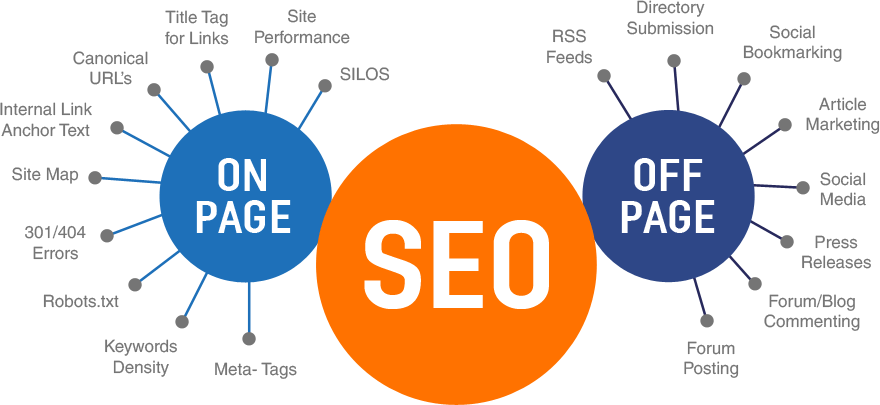What’s the Difference Between On-Page and Off-Site SEO?
Tom Sawyer • March 19, 2020
It’s not as simple as plugging a few keywords into website copy anymore.

Search engine algorithms are constantly evolving. Both on-page and off-site factors play a role in spreading the word about your business. There are strategies for both types of SEO, but to execute them successfully, companies need to understand how they differ.
On-page SEO explained
While keyword-rich content is helpful, there’s more to on-page SEO than that. It consists of everything you control on your website. Here’s a quick glimpse into some of the different forms of on-page SEO:
• Consider adding meta descriptions to each web page. They provide a summary of the content and appear below the URL on search engine results pages (SERPs). Make sure it’s concise and informative. Throw in a couple keywords, too!
• If you have images on your website, they need alt text. Similar to adding keywords, alt text is a few words or a phrase attached to an image so it appears in search results. The alt text should be an accurate description of the image, so you don’t mislead users.
• A title tag is the heading you see at the top of a web page. This could be the name of a company, a blog post title, or any other information that informs users about the web page’s content. Title tags are another part of on-page SEO with keyword potential.
• Search engines like Google favor websites that enable a Secure Sockets Layer (SSL). You’ll earn a higher ranking in search results with an SSL because it provides added security, making it easier for Google and visitors to trust your site.
• Make sure your website contains internal links—links to other pages you’ve authored. Internal linking makes it easier for users and search crawlers to navigate your website. If your web pages are easy to find they are more likely to show up in search results.
Off-site SEO in a nutshell
Contrary to on-page SEO, off-site SEO consists of what you can’t directly control. Other people create backlinks and tag your brand in social media posts—all occurring away from your website. The key to garnering good off-site SEO is to improve your brand’s presence online. The more trusted, reputable and popular you are, the bigger your off-site SEO profile grows.
There are some other factors you can control including domain age. It takes time to build your search engine ranking so the older your website is, the more visible it will be. You can also pay for advertising space on other websites. Advertisements offer a direct link to your website and help spread the word about it. Many companies participate in pay-per-click (PPC) campaigns paying a small fee every time a user clicks their advertisement.
Both are essential for a strong business
Getting a handle on both on-page and off-site SEO is important for controlling your small business’ online presence. SEO as a whole is crucial for success, but you need to be strategic in approaching both sides of it.
Can’t seem to stay on top of it all? Let NJ Local Marketing help you manage your SEO efforts with targeted focuses for both on-page and off-site efforts. Contact us today for a free consultation!

